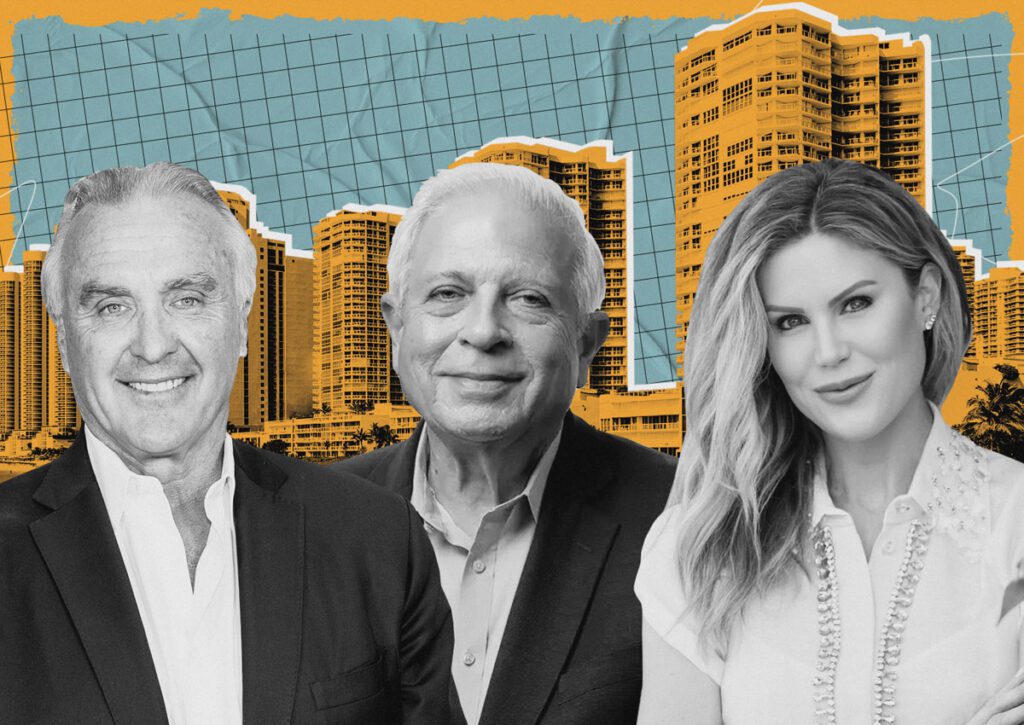South Florida Condo Market: A Look at Current Trends and Challenges
The condo market in South Florida is facing unprecedented challenges, with significant declines in sales and a growing inventory of older properties. Recent data reveals complexities that both buyers and sellers must navigate in today’s market.
Current Market Dynamics
Residential broker Erin Sykes recently made headlines by reducing the price of a condo at the Regency of Palm Beach. Originally listed at $849,000, the price has now dropped to $649,000 after a $70,000 cut. This particular condo, a two-bedroom, two-bathroom unit covering 1,358 square feet, is indicative of broader market trends.
Key Points:
- The building, a 60-year-old oceanfront property, is nearing the completion of necessary concrete restoration.
- Despite numerous showings, Sykes noted that serious buyers are scarce. “The condo market is extremely challenging in South Florida right now,” she commented.
The Data vs. Reality
Reports indicate that month-over-month condo sales in South Florida are down by approximately 6%. The difficulties are exacerbated by:
- Rising interest rates.
- Outpricing many potential buyers while straining existing owners.
Declining Foreign Investment
Once a robust segment, foreign buyers have largely retreated from the market:
- In 2010, they accounted for 57% of home sales in Florida.
- Between August 2023 and July 2024, they represented just 3% of transactions.
This decline is primarily attributed to changes in market conditions and financial regulations, which have made it more challenging for buyers to secure financing for older condos.
Historical Context: Post-Surfside Impacts
The tragic collapse of the Champlain Towers South in 2021 continues to cast a long shadow over the condo market. With new legislation mandating safety and financial requirements, many owners find themselves unable to afford necessary assessments for repairs.
Market Implications
- The Miami-Dade County Property Appraiser, Tomas Regalado, has reported a slight year-over-year decline in taxable values for older condos, heavily impacting market conditions.
- The estimated taxable value for real estate in Miami-Dade has reached $511.8 billion, marking an annual increase of 8.5%, yet the pace of growth is slowing.
Inventory Trends
As of now, South Florida’s condo market is saturated, with over 25,000 units available:
- Characteristics of Listings:
- Approximately 87% of condos are located in buildings 30 years or older.
- Only 12% are in newer constructions.
Craig Studnicky, CEO of ISG World, states, “Older condos are just not selling.” Financing issues for these properties are common due to stricter lending criteria, leading to a backlog of unsold inventory.
The Rise of New Developments
Despite challenges, developers are continuing to break ground on new projects. As domestic buyers increasingly step in, the upscale market remains resilient:
- An unnamed finance executive is reportedly in contract to purchase a waterfront home lot in Indian Creek for $110 million.
Numerical Snapshot of Sales Decline
Recent reports from the Miami Association of Realtors paint a stark picture:
-
Miami-Dade County:
- Condo sales have fallen 21% year-over-year, with only 1,005 closings.
- Single-family home sales decreased nearly 11%.
-
Broward County:
- Condo sales dropped by 19.2%, totaling 1,085 units.
- Palm Beach County:
- Single-family sales went down by 5.3%, while condo sales fell 14.4%.
Insights Into Cash Buyers
Interestingly, the higher-end market remains robust, driven largely by cash transactions. In fact, 74% of sales for condos priced at over $1 million were completed without financing in the first quarter.
Ana Bozovic, a market analyst, suggests that the high cash presence undermines notions of an impending market crash. She notes, “We cannot have a bubble in a high all-cash market.”
Conclusion: Navigating the Future
While the South Florida condo market faces significant challenges, including an oversupply of older units and declining sales, the luxury market and new developments exhibit resilience. Stakeholders must remain agile, adapting to changing buyer behaviors and financial climates.
Moving Forward
Tomas Regalado is in discussions with local officials about alleviating housing issues and addressing rising property taxes. As the market evolves, the focus will need to shift toward creating sustainable and affordable housing options.
For more information on South Florida real estate trends, check out Florida Realtors and the Miami Association of Realtors.
Note: For ongoing updates and insights, staying connected with local real estate news sources can offer crucial perspectives as the market continues to shift.


